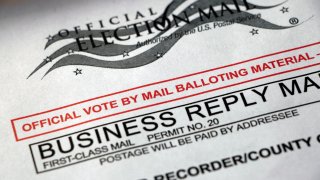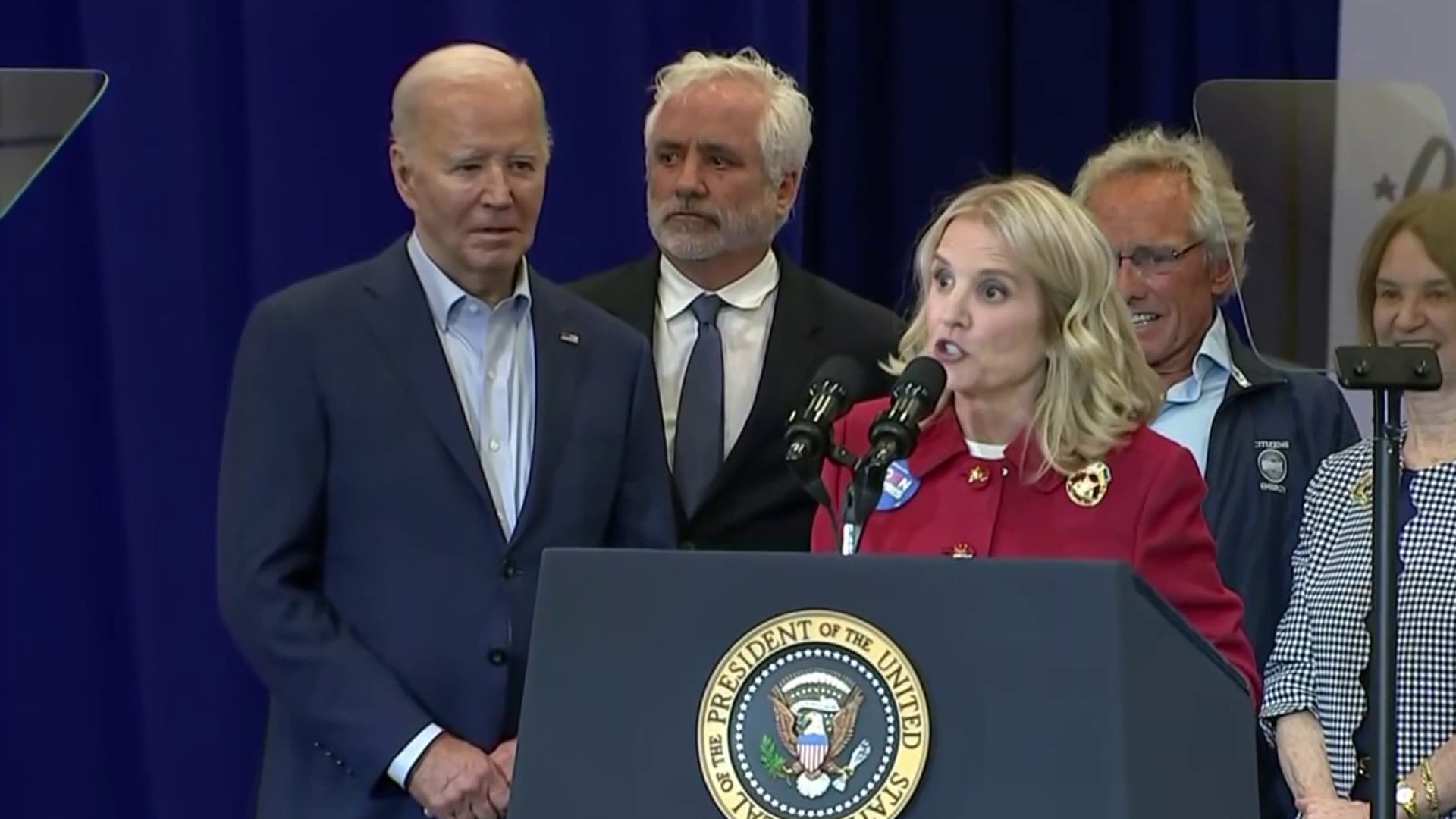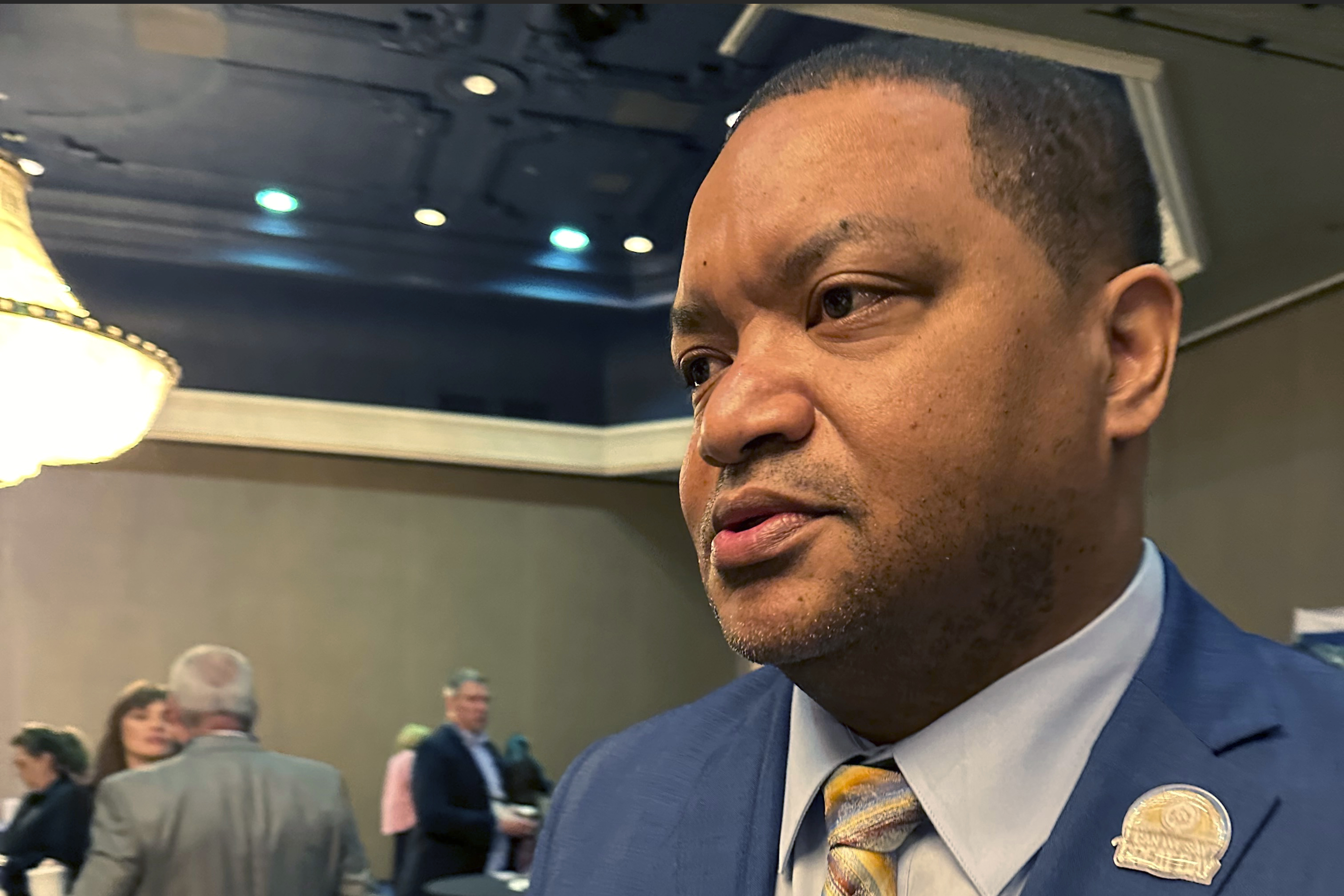
New Jersey's nearly all-mail primary on Tuesday is emerging as a test of the state's ability to deliver a drama-free election in the face of critical tweets from President Donald Trump and a GOP seeking federal election monitors.
Tuesday is the deadline for Democratic and Republican voters to postmark their ballots or deliver them to county boards of election by 8 p.m. in contests for president, the U.S. Senate and the House.
New Jersey previously had no-excuse mail-in voting, but Democratic Gov. Phil Murphy this year mandated the election take place principally by mailed ballots because of the COVID-19 outbreak and fears that gathering at polling places would spread the virus.
Each county must still keep some polling places open for people who wish to vote provisionally in person. That means the voter casting a provisional ballot would have her or his vote counted after officials determined the ballot mailed to the voter's home was not cast.
Get Philly local news, weather forecasts, sports and entertainment stories to your inbox. Sign up for NBC Philadelphia newsletters.
Murphy and his administration say they've learned lessons from May 12 municipal elections that led to disastrous headlines.
About 20% of the ballots were rejected over suspected tampering in Paterson, and the attorney general pursuing criminal charges against four men — including a Paterson city councilman and an incoming council member — over illegal bundling of ballots. Under New Jersey law, a so-called bearer can transport only up to three ballots to the board of elections.
Paterson's troubles caught Trump's attention. He tweeted recently that absentee voting was OK, but mail-in elections were not, misspelling Paterson.
Politics
“Mail-In Voting, on the other hand, will lead to the most corrupt Election is USA history. Bad things happen with Mail-Ins. Just look at Special Election in Patterson, N.J.," he tweeted.
Historically, there is no evidence of widespread voter fraud through mail-in voting, and five states conduct all-mail elections.
In most election years, voting by mail is an unremarkable event. But this year is different because Trump railed against states' efforts to expand access to mail-in voting as an alternative to waiting in lines at polling places during a pandemic.
The president's concerns are being echoed by the state GOP, which has asked the U.S. attorney to install federal election monitors for the primary.
Murphy has said he takes the concerns seriously, and his administration has added a process for mail-in voters to contest their ballots being rejected because of signatures — an option that didn't exist before.
But the governor has also faulted the president, without naming him directly, for what he sees as politicizing voting by mail.
“There’s also a political narrative that has sort of developed around vote by mail, which I think far exceeds the actual reality of what the experience is like in terms of the challenges associated with it,” Murphy said recently. "This has become a political football as opposed to just the facts of where may we have a legitimate break in the system that we need to address."
The fast ramp-up of voting by mail is a concern, though, said Patrick Murray, the director of the Monmouth University Polling Institute. New Jersey should have more than the five drop-box locations per county for voters to leave their ballots, he said, and in-person voting centers that allow for social distancing should also have been considered.
“Conceptually it makes sense to keep as few people going," he said. “The point is you can’t do this well unless you have piloted it for a number of years, cycles."
Matt Platkin, Murphy's chief counsel, said the administration takes fraud concerns seriously.
“We’re doing everything we can to combat against any potential fraud and ensure that everyone who wants to vote can vote, and can do so safely and properly," he said.
Murphy has not said whether the November general election would be primarily by mail-in ballots.
A look at some of the key races in Tuesday's primary:
President
Trump is the only Republican on the ballot for president. While former Vice President Joe Biden is still being challenged on the ballot by Sen. Bernie Sanders, Biden has already emerged as the Democrats' presumed nominee.
Senate
Incumbent Democratic Sen. Cory Booker faces a challenge from long-time organizer Lawrence Hamm, who's running under the Not Me, Us slogan used by Sanders. On the GOP side, there is a five-way race. The candidates are Rik Mehta, a business executive with a law degree and a doctorate in pharmacy, along with Hirsh Singh, who ran unsuccessfully for governor in 2017; Patricia Flanagan, of Lawrenceville; Natalie Lynn Rivera, of Merchantville; and Eugene Anagnos, of East Hanover.
House races to watch
2nd District: This is the southern New Jersey district represented by Jeff Van Drew, who switched from Democrat to Republican because of his disagreement over impeaching Trump. The Democratic primary includes former educator and member of the Kennedy political family Amy Kennedy; Montclair State University political science professor Brigid Callahan Harrison; and Booker policy staffer Will Cunningham.
3rd District: The district includes Burlington and Ocean counties and is currently represented by freshman Democrat Andy Kim, who defeated Republican Tom MacArthur in 2018. The GOP primary includes former Burlington County freeholder Kate Gibbs and former Hill International CEO David Richter. Richter had been running as a Republican in the 2nd District until Van Drew's party switch. He then entered the 3rd District race.



